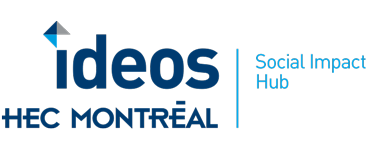SEED is a cross-sector partnership involving IDEOS, Desjardins International Development (DID), international funding agencies, local partners and research teams from partner universities. DID, a component of the Desjardins Group since 1970, promotes the autonomy of less privileged populations through investment and technical support. It is around these two development levers that the SEED projects are structured.
The partner universities of this project, University of Navarra (IESE Barcelona), University of Alberta, and University of Michigan compose a network of researchers whose main mission is to mobilize research for the benefit of micro-entrepreneurs and micro-enterprise development at the Canadian and international levels.
University researchers involved:
- Luciano Barin Cruz Full Professor, HEC Montréal
- Charlene Zietsma Associate Professor, University of Michigan
- Desirée Pacheco Associate Professor, IESE
- Angelique Slade Shantz Assistant Professor, University of Alberta
- Geoffrey M Kistruck, Professor, Schulich School of Business, York University
- Kylie Heales Ph.D. Student, Univeristy of Alberta
- Celeste Diaz Ferraro PhD Student, Penn State University
- Katherine Picone Master’s student, HEC Montréal
IDEOS – TECHNICAL PARTNER
IDEOS is mandated by DID to provide technical support to local organizations with the goal of supporting entrepreneurs in their development and improving their individual and collective autonomy. Financial support is provided by international funding agencies.
For more information, contact Katherine Picone

CO-DEVELOPMENT
In order to support entrepreneurs in their development and improve their autonomy, the SEED research team develops with local organizations technical tools, such as trainings, validated through a scientific research process. This process takes place over several months and includes multiple critical steps. Throughout the process, co-development is paramount.
At the end of each project, it is thus possible to identify the technical tools that are best adapted to the reality of the local entrepreneurial population.

o1
PREPARATION
Identification of the geographic area, local partners and the population of entrepreneurs targeted by the project.
o2
Exploration
Why do we do this? To understand the factors influencing the entrepreneurial development of the target population and the context in which all the actors in the ecosystem evolve and to identify the issues to be resolved.
o3
CO-CREATION
Co-development of two versions of a program that could address the issues identified during the exploratory phase.
Why two versions of the training program? To test each program on the entrepreneurial development of the target population and to evaluate the impact of these programs.
o4
FIELD TESTING
o5
DATA COLLECTION AND ANALYSIS
Through the analysis of the data collected from each of the training groups, it is possible to identify overall results. At this stage, the objective is to broaden and deepen the understanding of the results obtained, as well as to combine the results of the quantitative and qualitative data to obtain a clearer representation of the impact of the project.
o6
RESULTS
The sponsor or local organization can implement a co-developed, tested and validated training program that is grounded in the reality of the field.
SEED IN HAITI
SEED IN SRI LANKA
SEED IN TUNISIA
Partners
Financial partners



Academic partners




Local partners







